In 860 AD, the Vikings launched a daring raid on the Mediterranean, targeting the island of Sicily.
This expedition was one of many that the Vikings undertook during their era of expansion, as they sought to expand their territory and gain wealth through plunder.
The raid on Sicily was notable for its audacity and the fact that it marked the Vikings’ first foray into the Mediterranean.
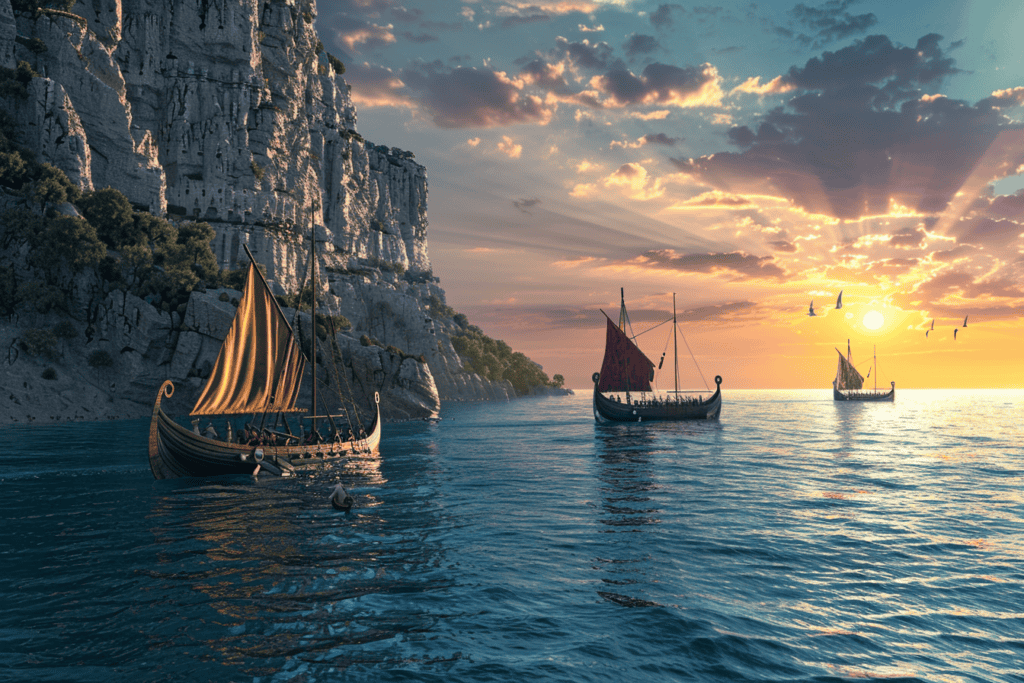
The Viking expedition to Sicily was led by the legendary Swedish king Björn Ironside and his foster father, Hastein. The earliest possible time that Vikings may have reached Sicily is recorded in a number of historical sources from Western Europe.
The raid was part of a larger pattern of Viking activity in the region, which included attacks on Moorish Seville in 844 and raids on Pisa, Lucca, and Fiesole in Italy in 860.
Despite facing stiff resistance from the local population, the Vikings managed to make off with a significant amount of loot and treasure.
The raid on Sicily was a bold move by the Vikings, who were known for their seafaring prowess and their willingness to take risks.
It marked a turning point in the history of the Mediterranean, as the Vikings demonstrated that they were a force to be reckoned with on the high seas.
Historical Background – Emergence of Viking Raiders
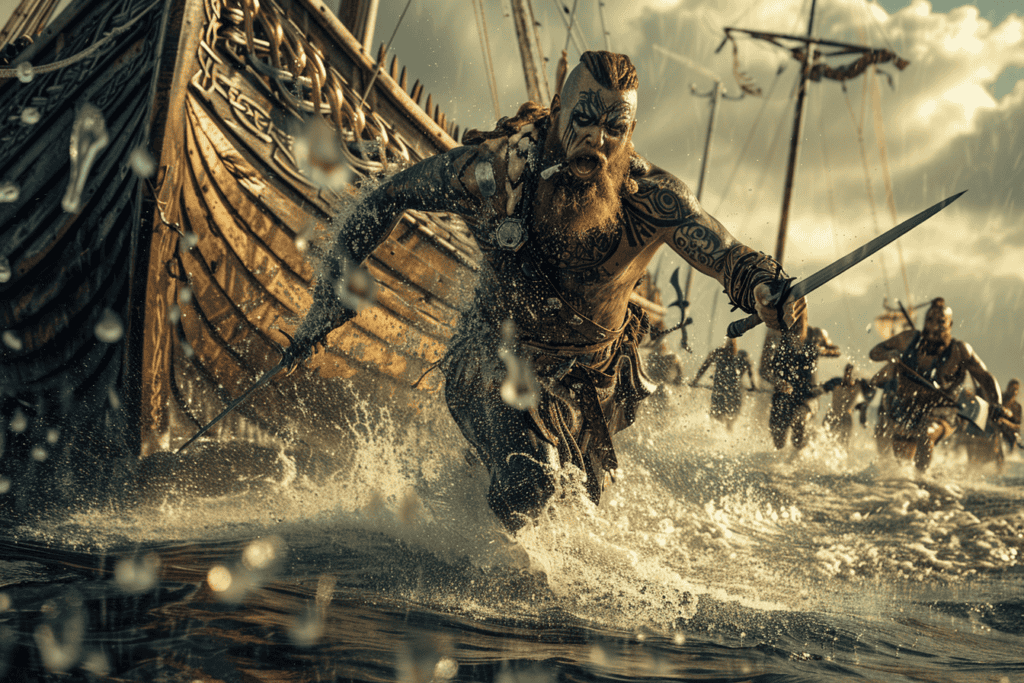
The Viking Age, which lasted from the late 8th century to the mid-11th century, was a period of expansion and exploration by the Viking raiders. The Vikings were seafaring people from Scandinavia who were known for their longships, which allowed them to travel long distances and raid coastal areas.
The Vikings were not a unified people, but rather a collection of tribes and clans who shared a common culture and language.
The Vikings were initially known as traders and farmers, but as their population grew and resources became scarce, they turned to raiding as a means of survival. The Vikings were particularly active in Europe, where they raided coastal towns and monasteries, and established settlements in places like England, Ireland, and Normandy.
Byzantine Empire at the Time
At the time of the Viking raid on Sicily in 860 AD, the Byzantine Empire was the dominant power in the Mediterranean region. The Byzantine Empire was a continuation of the Roman Empire, and its capital was Constantinople (modern-day Istanbul).
The Byzantine Empire was known for its wealth and power, and it controlled much of the eastern Mediterranean, including Greece, Egypt, and Syria. The Byzantine Empire was also known for its military might, and it had a large and well-trained army.
The Vikings, who were known for their raiding and pillaging, were a threat to the Byzantine Empire. The Vikings had previously raided Constantinople in 860 AD, and the Byzantine Empire was keen to prevent further Viking incursions into its territory.
The Varangians, who were a group of Viking mercenaries, were employed by the Byzantine Empire to serve in its army. The Varangians were known for their bravery and skill in battle, and they played an important role in defending the Byzantine Empire against its enemies.
The Raid of 860 AD – The Siege of Sicily
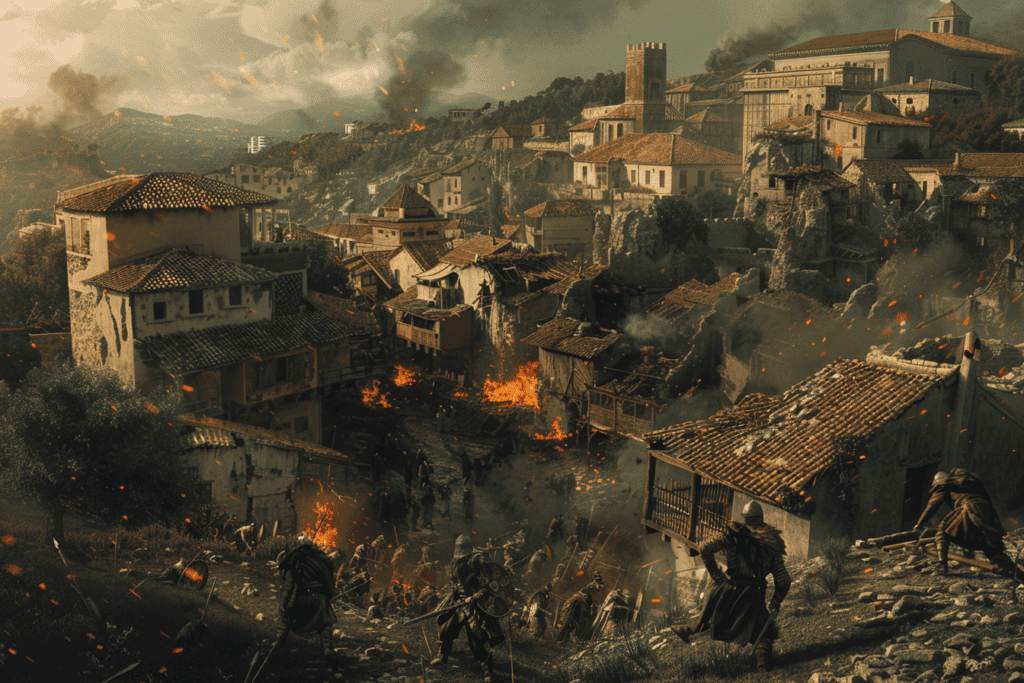
In 860 AD, a Viking fleet of 200 ships, carrying as many as 20,000 Vikings, suddenly emerged from the Bosporus, a narrow strait connecting the Sea of Marmara to the Black Sea, to assault Constantinople.
The Vikings, known for their raiding and pillaging, were looking for new territories to conquer and loot. They targeted Sicily, which was a wealthy region and a hub of trade routes connecting Europe, Africa, and the Middle East.
The Sicilian defenses were not prepared for the Viking attack, and the raiders managed to land and establish a stronghold.
The Vikings besieged the region, attacking small towns and villages, and looting everything they could find. The Sicilian population was terrorized and had to flee their homes, leaving behind their possessions and wealth.
Viking Strategies and Tactics
The Viking raiders were known for their strategic and tactical skills. They used their longships, which were fast and maneuverable, to navigate through narrow waterways and surprise their enemies. The Vikings also used their knowledge of the sea and the wind to their advantage, often attacking during storms or at night.
The Vikings were also skilled warriors, using their axes, swords, and spears to devastating effect. They were known for their ferocity and their willingness to fight to the death. The Vikings also used psychological warfare, using their reputation as fierce warriors to intimidate their enemies.
The Viking raid on Sicily had a significant impact on the region. The raiders looted and pillaged the region, taking back with them a vast amount of wealth and treasures. The Sicilian population suffered greatly, with many losing their homes and possessions.
The raid also had political implications, as the Byzantines and the Arabs saw the Viking raid as a threat to their power and influence in the region. The Byzantines hired Norman mercenaries to help defend the region, which led to the Normans establishing a foothold in southern Italy.
Resulting Cultural and Economic Exchange
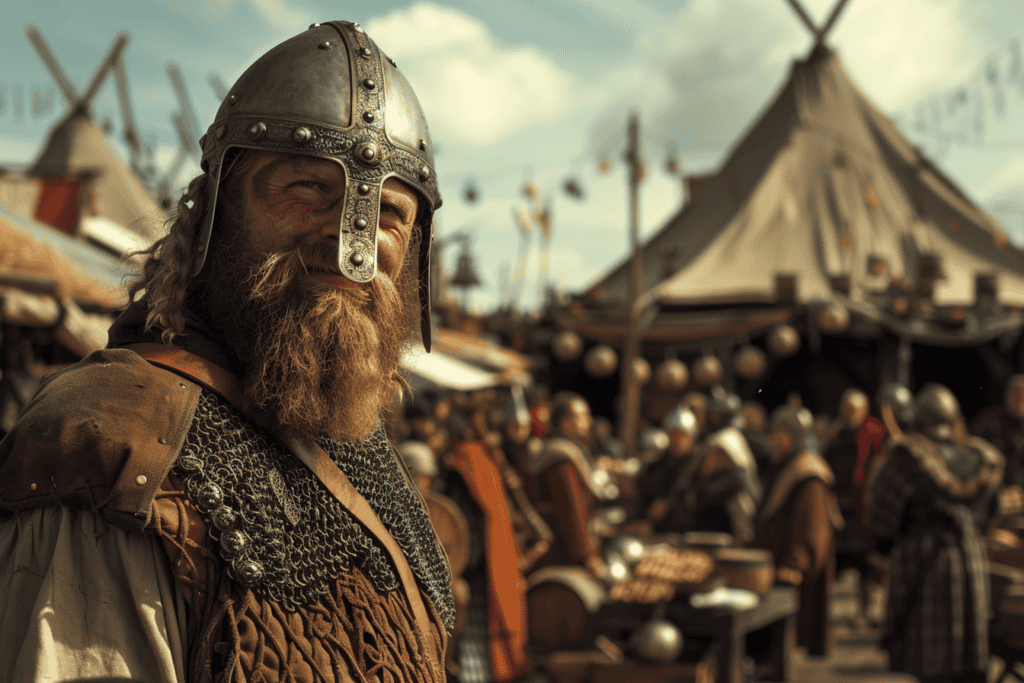
The Vikings’ maritime prowess allowed them to establish trade routes with various cultures across the Mediterranean Sea and beyond.
They traded goods such as silk, furs, and silver, which were highly valued in the markets of the Islamic World, Eastern Europe, Asia, and beyond.
The Vikings’ trade network extended to the Black Sea and the Caspian Sea, where they established contact with the Khazar Khaganate and other neighboring states.
The Vikings’ commercial activities also brought them into contact with the Normans, who were themselves of Viking origin. The Normans had established a presence in southern Italy and Sicily, and the Vikings’ trade with these regions likely contributed to the cultural exchange between the two groups.
The Vikings’ interaction with other cultures was not limited to trade. They also had a significant impact on the societies they encountered.
The Vikings’ reputation as fierce warriors made them a feared presence in the Mediterranean, and their raids on coastal settlements left a lasting impression on the local populations.
However, the Vikings also had a more positive influence on the societies they encountered. They introduced new technologies and techniques, such as shipbuilding and navigation, which were adopted by the local populations. The Vikings also brought with them their own cultural traditions, which were incorporated into the local cultures.
Legacy of the Viking Expeditions – Historical Significance

The Viking expeditions to Sicily in 860 AD left an indelible mark on the history of Europe. The raids on the Mediterranean, while not the first of their kind, were significant in that they marked the beginning of a new era of Viking exploration and expansion.
The Vikings’ ability to travel long distances and conquer new territories made them a force to be reckoned with in the medieval world.
The raids also had a profound impact on the development of Christianity in Europe. The Vikings’ attacks on Christian monasteries and churches led to the destruction of many religious artifacts and the loss of valuable historical records. However, the raids also spurred the growth of the Christian church as it struggled to defend itself against the Viking onslaught.
One of the most significant legacies of the Viking expeditions was the establishment of the Varangian Guard. This elite group of Viking warriors served as the personal bodyguard of the Byzantine Emperor and played a crucial role in defending the empire against its enemies. The Varangian Guard was made up of Scandinavians and other northern Europeans who had been recruited by the Byzantine Empire.
Modern Perception and Scholarship
The Viking expeditions to Sicily and other parts of Europe have been the subject of much scholarly research and debate.
Historians have sought to understand the motivations behind the Viking raids and the impact they had on the societies they encountered.
In popular culture, the Vikings are often portrayed as bloodthirsty raiders who were motivated solely by a desire for wealth and power.
While there is some truth to this image, historians have also uncovered evidence of Viking exploration and trade.
The Vikings were skilled navigators who traveled extensively throughout Europe and beyond.
They established trade routes and cultural contacts with other societies.
The Viking expeditions also had a lasting impact on the development of Normandy in France and Kievan Rus in Russia.
Many Vikings settled in these regions and played a significant role in shaping their cultures and histories.
The Viking expeditions to Sicily and other parts of Europe continue to fascinate scholars and the general public alike.
They serve as a reminder of the enduring legacy of these intrepid explorers.

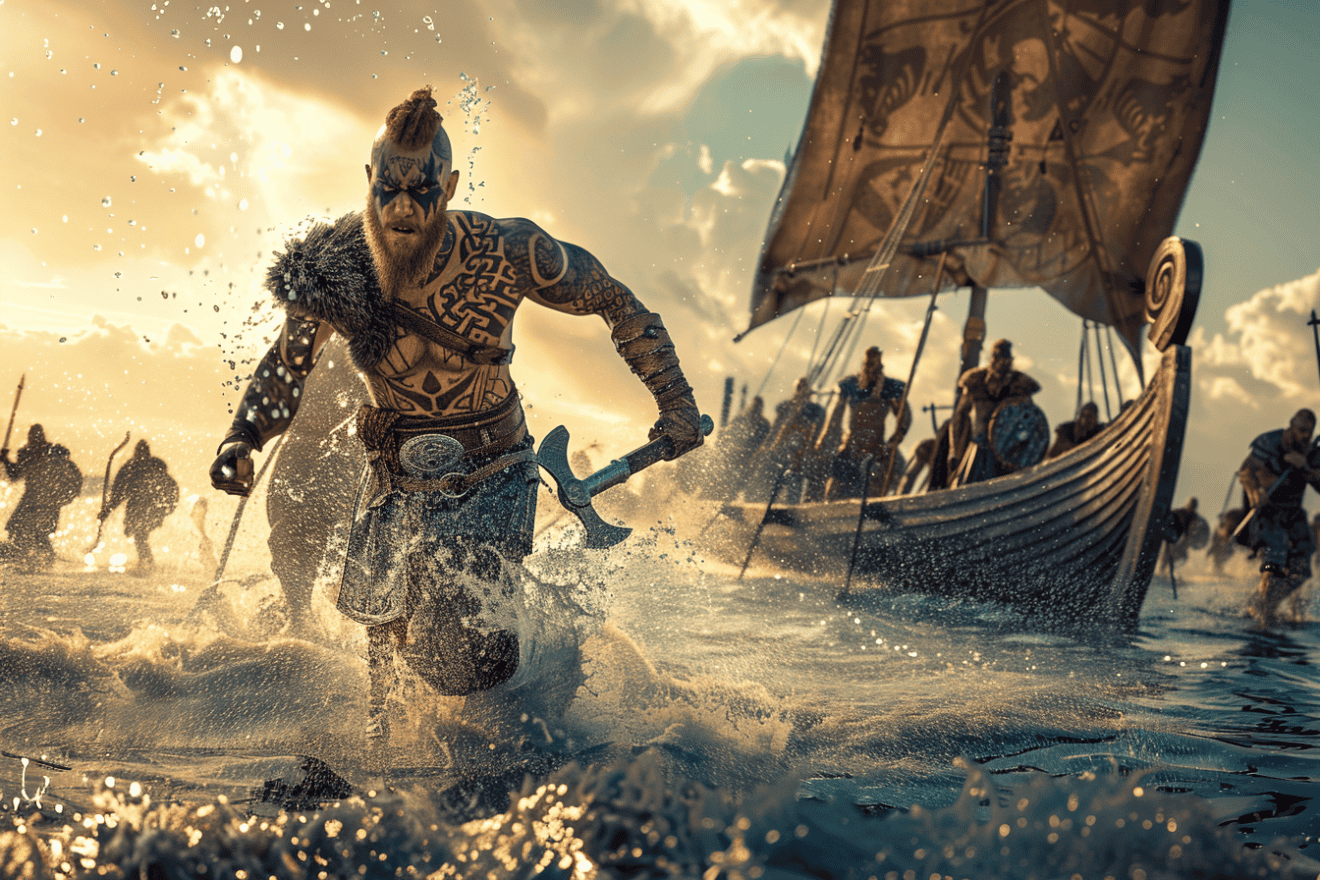








Add Comment